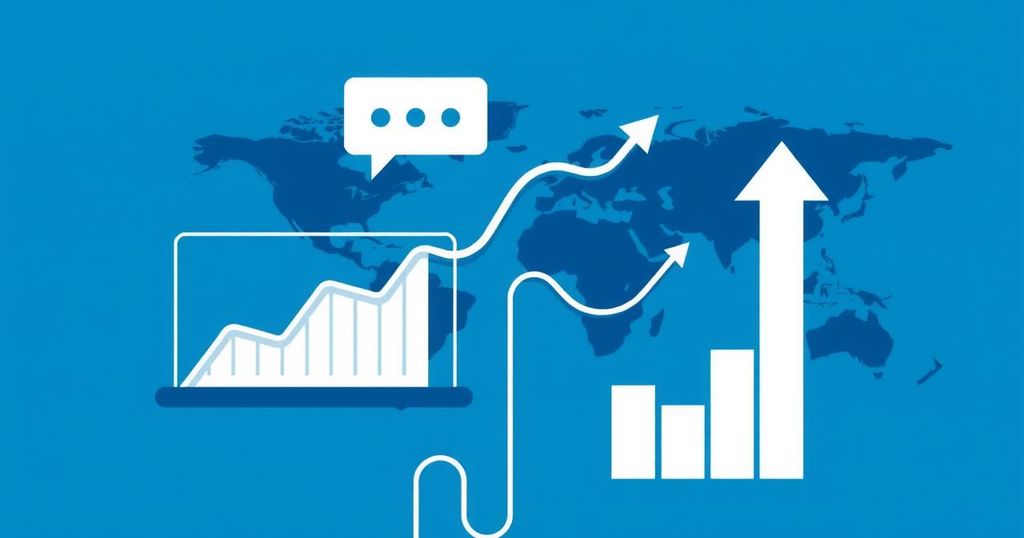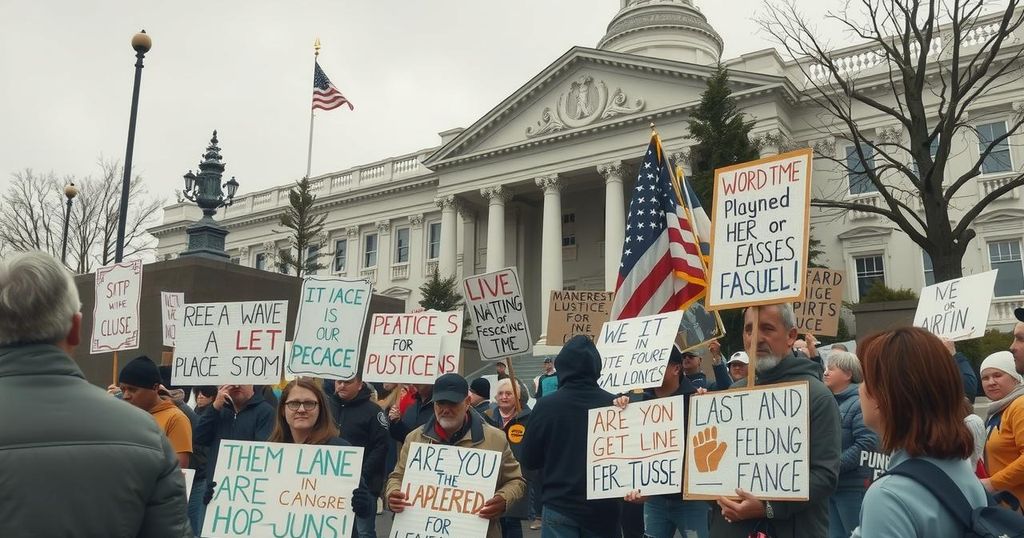The DRC faces escalating conflict with Rwanda-backed M23 rebels, who have seized Goma and advanced into South Kivu. Regional leaders are urging for peace negotiations and humanitarian support as the conflict worsens. Rwanda’s alleged support for M23 continues to be contested. The mineral-rich regions such as Rubaya are being exploited, raising concerns over resource management. Analysts argue for diplomatic solutions, emphasizing collaboration rather than military responses, to stabilize the region.
The Democratic Republic of the Congo (DRC) is currently facing an escalating conflict with the Rwanda-backed M23 rebels, who recently seized control of Goma and are advancing into South Kivu. Despite urgent calls from regional leaders for a ceasefire and peace negotiations, hostilities persist, prompting summits among the Southern African Development Community (SADC) and East African Community (EAC) aimed at resolving the crisis. Regional leaders are advocating for humanitarian aid and a proper security plan for Goma, while M23 has resumed attacks despite previously declaring a ceasefire.
Rwanda’s involvement in the conflict has long been a point of contention, with UN allegations suggesting that Kigali supports M23 with military resources. The Rwandan government, however, denies these claims, stating that its military actions are defensive against threats posed by anti-Rwandan militias based in the DRC. M23 asserts it is fighting for the rights of ethnic Tutsis in the DRC but is accused of committing rights violations and territorial expansion.
The DRC’s historical tensions with Rwanda are rooted in the aftermath of the Rwandan genocide, leading to a refugee crisis that gave rise to various armed groups, including M23. The group emerged from the 2009 peace agreement and accuses the DRC of failing to integrate Tutsis into the government and army. The UN has reported a significant rise in casualties and displacement due to the recent conflict, worsening the humanitarian situation.
In addition to the violence, the minerals-rich regions of eastern DRC are a focal point of exploitation, particularly coltan, vital for electronics. M23 has gained considerable revenue from controlling mining areas, generating approximately $800,000 monthly through taxation. Critics claim Rwanda collaborates with M23 to plunder DRC’s mineral wealth, although some analysts argue that the primary concern is the protection of the Tutsi community.
Military responses have been proposed by DRC’s President Tshisekedi, yet regional analysts emphasize the need for a diplomatic approach that includes all stakeholders, including M23. Talks were recently disrupted by the absence of critical leaders, and ongoing reliance on foreign military assistance, notably from the UN and various regional forces, is viewed as a barrier to establishing lasting peace. The situation remains precarious, with international observers warning of potential humanitarian crises that could extend beyond the DRC’s borders.
The DRC’s situation highlights the complex interplay of regional security, ethnic tensions, and resource exploitation. The continued fighting led by M23 rebels backed by Rwanda poses significant humanitarian challenges and calls for urgent international intervention. While military solutions are being considered, effective diplomacy and inclusive negotiations could present a pathway towards stabilization. Overall, addressing the root causes of the conflict and ensuring the sovereignty of the DRC are essential for achieving peace in the region.
Original Source: www.aljazeera.com




